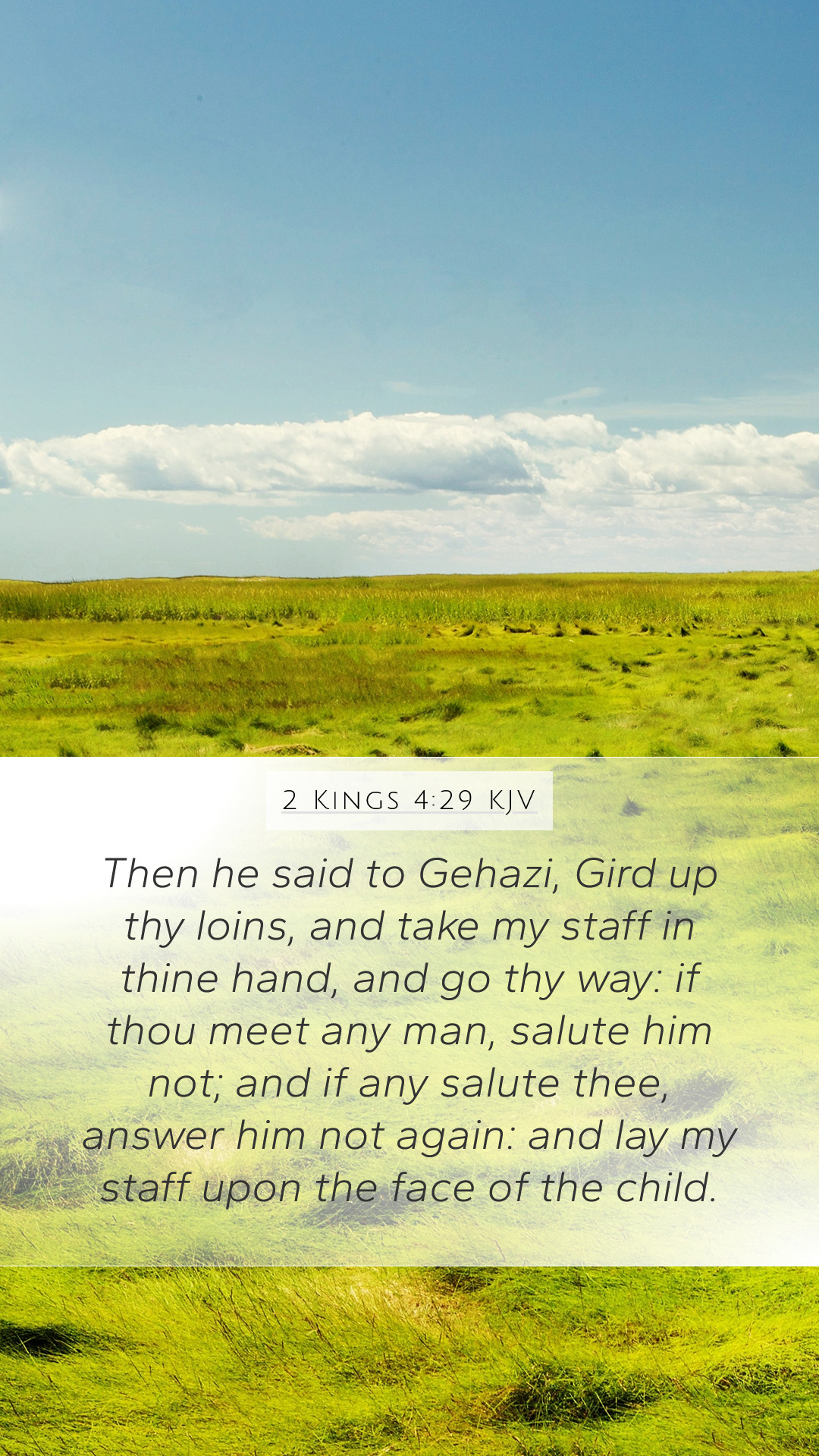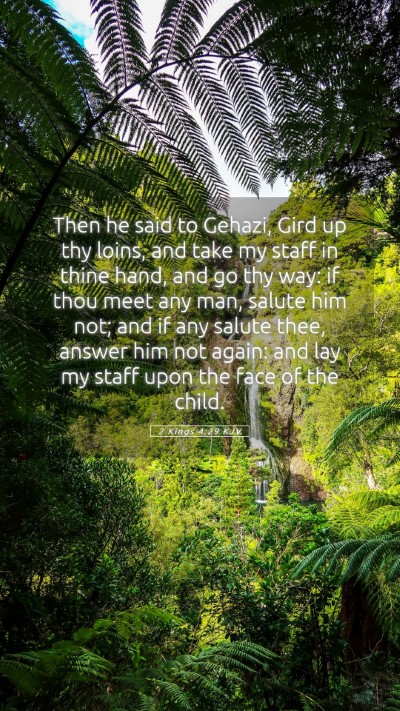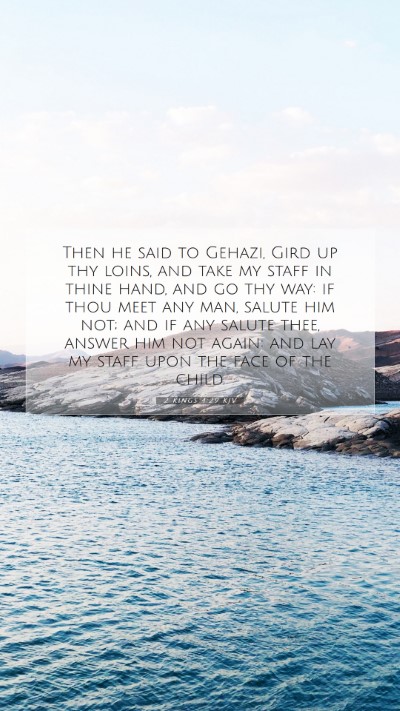Understanding 2 Kings 4:29
2 Kings 4:29 states: "Then he said to Gehazi, 'Get yourself ready, and take my staff in your hand, and be on your way. If you meet anyone, do not greet him; and if anyone greets you, do not answer him; but lay my staff on the face of the child.'" This verse presents a profound moment in the life of the prophet Elisha as it encapsulates the urgency, authority, and expectation of divine intervention.
Bible Verse Meanings and Interpretations
This verse holds significant meaning in unraveling the nature of prophetic ministry and highlights the expectations placed upon those who serve within that realm. The instructions given to Gehazi can be interpreted as an indication of the urgency and seriousness surrounding Elisha’s mission.
Examination of Key Elements
- Elisha's Authority: According to Matthew Henry, Elisha's command to Gehazi demonstrates a transfer of power and responsibility as Gehazi is tasked not only with carrying the staff but also with the expectation of performing a miraculous act.
- The Staff as a Symbol: Albert Barnes highlights that the staff in biblical times symbolizes authority and confirmation of God's power. By laying the staff on the child's face, Gehazi was given an instrument of divine power to bring about healing.
- Urgency of Action: Adam Clarke points out that the directive's urgency reflects the critical state of the child. Elisha’s instructions to avoid greetings or conversations underscore the importance of focusing solely on the mission at hand.
Insights from Bible Commentaries
Matthew Henry notes that Elisha's instruction underscores the notion that quick and decisive action is often necessary in ministry. It also implies that the servant, Gehazi, should not be distracted by the world as he undertakes this divine task.
Albert Barnes suggests that the laying on of the staff was an act of faith, indicating that even without Elisha’s physical presence, God’s power could still be invoked. This emphasizes the continuity of God’s work through His chosen instruments.
Adam Clarke further elucidates the relationship between the prophet and his servant, suggesting that Gehazi is expected to replicate the faith and authority of Elisha, indicating spiritual maturity and readiness for prophetic ministry.
Application of 2 Kings 4:29
This verse not only serves as a historical account but also offers practical applications for contemporary believers. The concept of urgency in responding to God’s call is pertinent in today’s world. It challenges believers to act decisively in faith, trusting in God’s provision and power as they engage in both personal and communal missions.
Bible Study Insights
When studying this verse, it can be beneficial to gather in bible study groups or utilize bible study tools that provide context for the actions of Elisha and Gehazi. Here are some methods for deeper understanding:
- Engage in online Bible study sessions that focus on Old Testament narratives.
- Use bible study guides that highlight the roles of prophets in Israelite history.
- Explore bible study lessons that connect Old Testament events with New Testament themes.
Cross References
- 1 Kings 17:17-24 - Elijah's miracle of raising the widow's son.
- 2 Kings 4:32-37 - Elisha raises the Shunammite's son.
- Matthew 10:14 - Instructions on how to conduct oneself on a mission for God.
Conclusion
2 Kings 4:29 serves as a crucial glimpse into the functioning of prophetic ministry and the expectations of those who serve. The emphasis on readiness, authority, and faith encapsulates a rich spiritual lesson, offering believers insights on how to approach their personal callings in the light of divine purpose.


